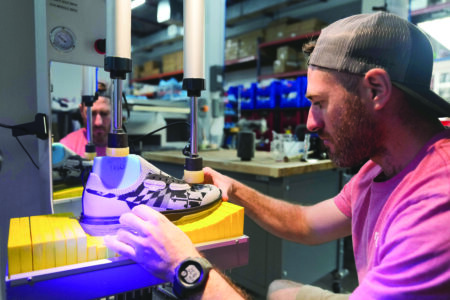Alert families help toddlers learn, grow

Sabin, DaVIS, HETRICK, ANDEREGG, Macalady, walker, darling and Katers
Toddlers between age two to three improve large motor skills like running, kicking, climbing, managing stairs, running and testing limits.
It’s an exhausting time for families and remains that way until about age five. However, if families know this is natural, set limits, and are very vigilant for safety, this mindset will help develop parental patience and management according to the American Pediatrics Association.
Repeat, prepare, redirect
Families can help by preparing, practicing, repeating positive phrases, and redirecting behavior. “When the big hand is on the one and the timer goes off, it is time to go home and have your favorite–mac and cheese.”
Acknowledge positive behavior. ” Great job! Thank you for picking up your toys!”
Redirect enthusiastically. “Let’s read your favorite book and cuddle with Baby Bear now. You look like you need a break!”
Reassure. “I love you, and this is dangerous. “Hold my hand for safety. I love you. Stop, look, listen and hold my hand as we cross the parking lot.”
Small motor skills
This age also makes great strides with brain development small motor skills, too. They like to dress and undress, turn pages of books, turn doorknobs, unscrew lids, feed themselves, build with small blocks and use figures for creative adventure stories.
One Grandma noticed her toddler going up to her TV and trying to swipe to change the picture. The parents decided they had been using technology too much and returned to hard copy books so their daughter could turn pages while reading together.
Often the brain is developing even faster than muscles in terms of doing the things they want to do and need a little help. Toddlers age two to three show greater understanding. They pay attention longer than last year and use colors when talking about objects, if taught. They are gobbling up information at a rapid rate. Toddlers can help, sort, and put things away.
Kindergarten teachers emphasize that it is important for adults to say, “I will help you do this “rather than “let me help you.” ” Me” is being overused as a subject of sentences like “Me will go to the bathroom “ even in kindergarten. The “Me” habit is as hard to extinguish. The age old problem of ” Me and Sam want this” instead of “Sam and I want this (correct form) is also a problem.
A new concern is second hand smoke and vapor around children. Their brains and lungs are absorbing the TCH and aerosol toxins during a time when their brain’s frontal lobe, the logical problem solving part of the brain, is experiencing its fastest growth until middle school when growth accelerates again. The toxin list is at gaspforair.org.
For more toddler activities see grandparentsteachtoo.blogspot.com and wnmufm.org/Learning Through the Seasons; live and podcasts.





